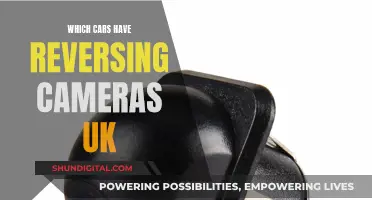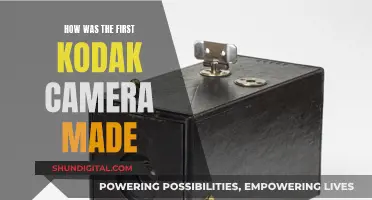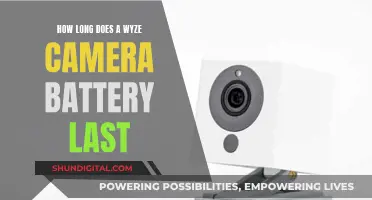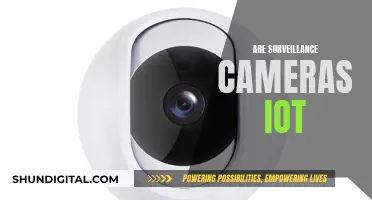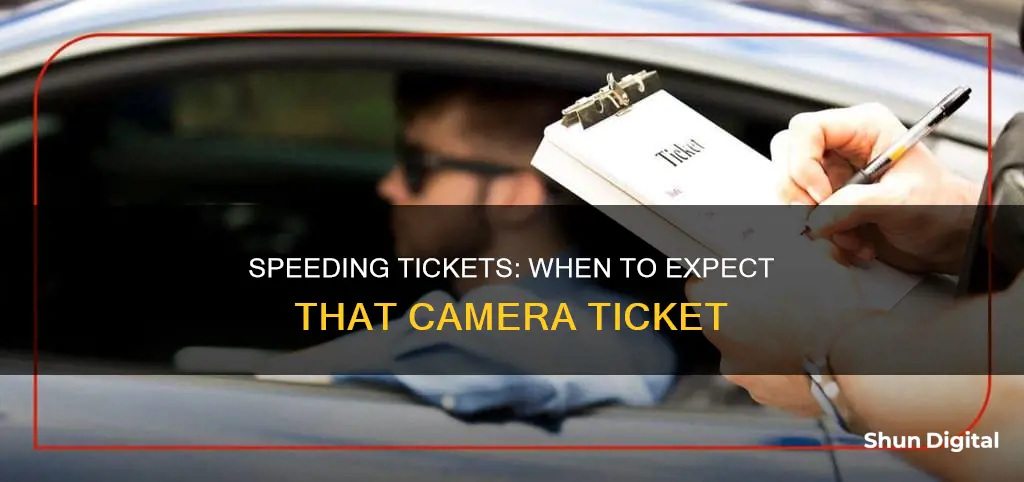
If you've been caught speeding, you're probably wondering how long it will take for that dreaded ticket to arrive. Well, it depends on where you are and how you were caught. In New York, for example, if you were pulled over by a police officer, they will give you the ticket on the spot, and you'll usually have 30 days to pay it. On the other hand, if you were snapped by a speed camera, you can expect your citation to arrive within about two weeks, and you'll typically have 30 days to pay the fine.
| Characteristics | Values |
|---|---|
| How long does it take to receive a speeding ticket in New York? | You'll usually get your citation within about 2 weeks, with 30 days to pay it. |
| How long do you have to pay a speeding ticket in New York? | 30 days |
| How long do you have to contest a speeding ticket in New York? | 90 days |
| How long do points stay on your license in New York? | Points will remain on a driver’s license for as long as the conviction remains on the record (up to four years). However, 18 months after the date of the violation, those points will no longer count toward the total number needed for a suspended license or Driver Responsibility Assessment. |
| How long does it take to receive a Notice of Liability for speeding in a work zone in New York? | For vehicles registered in New York State, a Notice of Liability will be sent to the registered owner of the vehicle within 14 business days from the incident. For vehicles registered in a state other than New York State, Notices of Liability will be mailed within 45 business days from the incident. |
What You'll Learn

In New York, you'll usually get your citation within 2 weeks
If you've been caught speeding by a camera in New York, you can expect to receive your citation through the mail within about 2 weeks. This is when you'll find out exactly how much your ticket will cost and when it needs to be paid by—usually within 30 days of receiving the citation, but you'll have up to 90 days if you want to contest it.
The amount you'll have to pay will depend on several factors, including how fast you were going, your past driving record, and the circumstances of your speeding. For example, speeding down a suburban street where children are playing will likely result in a higher fine than speeding on an empty road in the middle of the night.
For a first infraction, you can expect to pay anywhere from $45 to $600. If you were going less than 10 miles over the speed limit, your ticket will likely be between $45 and $150. If you were going 11-30 miles over the limit, you'll pay an average of $150 to $200. And if you were going more than 31 miles over the limit, your ticket could be as high as $600.
Keep in mind that if you accumulate 6 points on your license, you'll also be charged a $70 Driver Assessment Fee. You can get up to 3 points for going over ten miles per hour over the speed limit and up to 11 points for driving more than 41 miles over the limit.
Charging Your Lumix Waterproof Camera: A Step-by-Step Guide
You may want to see also

You'll have 30 days to pay a speeding ticket
If you've been pulled over by a police officer and issued a speeding ticket, you'll typically have 30 days to pay it. This timeframe can differ depending on your location, however. For instance, in New York, you usually have 30 days to pay a speeding ticket, but if you want to contest it, you'll have up to 90 days to do so.
When you receive a speeding ticket, it's important to take note of the deadline by which you need to pay it. Failing to pay a speeding ticket within the allotted time can result in additional penalties and consequences. These consequences can vary depending on the laws of your state or country.
In some cases, you may have the option to plead "guilty" or "no contest" and pay the fine associated with the ticket. Pleading guilty means you admit to the violation, while pleading no contest means you neither admit to nor contest the charge. Both pleas will typically result in the same penalty and will be recorded on your driving record.
It's worth noting that the process for paying a speeding ticket can vary. In some places, you may be able to pay the ticket online, by mail, or in person. Additionally, certain jurisdictions might require a mandatory court appearance, especially for more severe violations.
If you're unable to pay the fine by the due date, you may have the option to request an extension or set up a payment plan. However, this may involve additional steps, such as providing information about your financial situation or appearing in court.
Where to Buy Camera Batteries: CVS Options
You may want to see also

You can contest a speeding ticket within 90 days of receiving it
If you've been caught speeding, you'll want to know how long it'll take for that ticket to arrive. The waiting period can be stressful, and you'll likely be wondering if there's anything you can do to contest the ticket. Well, you'll usually have to wait around two weeks to receive a speeding ticket, and you'll then have 30 days to pay it. But if you want to contest it, you'll generally have up to 90 days to do so.
Contesting a Speeding Ticket
If you plan to fight a speeding ticket, you'll need to enter a plea and set a court date. You can do this by appearing before a judge and entering a plea in person, or by contacting the County Clerk's office or the courthouse directly. Your trial will usually occur within 45 days of entering your plea, so it's important to start preparing your case as soon as possible.
When it comes to your plea, you have a few options:
- Pleading guilty means accepting the ticket and the resulting fines, which will likely increase your insurance premiums.
- Pleading "no contest" means you're not contesting the charges but not pleading guilty either. This will also result in the same consequences as pleading guilty.
- Pleading "guilty with explanation" means you admit to speeding but want the court to consider certain circumstances that may result in your insurance premiums remaining the same.
- Pleading "not guilty" means you'll fight the ticket in court. This is the best option if you want to avoid losing money over the ticket.
Preparing for Your Court Date
Before your court date, it's a good idea to visit the Department of Motor Vehicles (DMV) to verify the status of your driving record. If you have a clean record, this can help your case. You should also review your rights as a defendant and familiarise yourself with the different members of the court, including the judge, prosecutor, court clerk, bailiff, and any witnesses.
Gathering evidence is crucial to building a strong case. Return to the scene of the citation and sketch a detailed diagram of the area, including road widths, traffic controls, the location of your vehicle and the officer's vehicle, and any notable features. You can also submit a discovery subpoena to access public records, such as information on the radar device used and the officer's track record in traffic court.
Choosing Your Defence
When choosing your defence, consider whether there were any technicalities, such as the officer being in the wrong jurisdiction, that could help get your ticket dismissed. You can also focus on challenging the officer's means of measuring your speed or their identification of your vehicle, especially if there were other similar cars on the road.
Presenting Your Case in Court
On your court date, be sure to dress professionally and politely introduce yourself to the prosecutor. During the trial, present your evidence and state your case clearly and calmly. If the prosecution calls any witnesses, take notes and prepare questions for cross-examination. Remember, your goal is to undermine their authority and raise reasonable doubts about your violation.
Understanding the Judge's Ruling
After hearing both sides, the judge will make a ruling. If they decide against you, you can appeal to a higher court, but keep in mind that an appeal is not a new trial. Instead, the appellate court will review the original trial for any legal errors that may have affected the final decision.
Understanding Slave Mode Functionality on Cameras
You may want to see also

The ticket will arrive in the mail
If you've been caught speeding, you'll likely receive a ticket in the mail within a couple of weeks. This can vary depending on your location, but generally, you can expect a ticket within a fortnight. This gives you time to consider your options before taking action.
When you open your mailbox and find a citation, it can be a stressful and frustrating experience. It's important to remember that you have several options and that receiving a ticket doesn't mean you have to immediately pay it. You usually have around 30 days to pay a speeding ticket, and up to 90 days if you want to contest it.
While it may be tempting to pay the ticket right away to get it out of the way, it's not always the best course of action. Paying a ticket without involving an attorney is an admission of guilt, and you forfeit your right to challenge the violation. This can result in points on your license and an increase in your car insurance rates.
Instead, consider hiring an attorney to help you contest the ticket. They can act as your advocate, negotiating on your behalf and working to minimise the impact on your life. Their relationships with local court systems can be beneficial in reducing charges, license points, and even the amount of the fine. So, while attorney fees can be expensive, they can save you money in the long run.
Choosing Solar Panels for Trail Cameras
You may want to see also

You can pay a speeding ticket online
The arrival time of a speeding ticket depends on whether you were pulled over by a police officer or caught by a speed camera. If a police officer pulls you over, they will give you the ticket directly, and you'll usually have 30 days to pay it or up to 90 days if you want to contest it. On the other hand, if you are caught by a speed camera, you can expect to receive your citation within about two weeks, with a similar timeframe to pay or contest it as a ticket issued by an officer.
Paying Speeding Tickets Online
The process of paying a speeding ticket online can vary depending on your location. Here are some general guidelines to keep in mind:
- Online Portal: Many jurisdictions offer online portals or websites where you can pay your speeding ticket. Search for the official website of your local government or the specific department that handles traffic violations. These websites often provide instructions on how to locate and pay your citation online.
- Information Required: To pay your speeding ticket online, you will need certain pieces of information. This typically includes your name, birth date, citation or ticket number, and the city/county where the citation was issued. In some cases, you may also need your driver's license number or other identifying information.
- Payment Methods: Accepted payment methods for online speeding ticket payments can vary. In most cases, you will be able to pay using a credit or debit card. However, some jurisdictions may also allow payments via electronic checks or other online payment services. Always review the accepted payment methods before initiating the transaction.
- Timing: There may be a specified time frame within which you need to pay your speeding ticket. For example, in some places, you may have 30 days to pay the ticket, while other jurisdictions may allow up to 90 days. Check the guidelines for your specific location to ensure you don't miss any deadlines.
- Contesting a Ticket: If you wish to contest the speeding ticket, the process may be different from simply paying it. In most cases, you will need to contact the court directly or follow a separate procedure outlined by your local jurisdiction. Contesting a ticket typically involves pleading not guilty and requesting a court hearing or providing evidence to support your case.
- Additional Options: Depending on your circumstances and the jurisdiction, you may have additional options available to address the speeding ticket. For instance, you might be able to opt for traffic school or a defensive driving course to reduce the impact of the violation on your driving record or insurance rates.
Remember to always refer to official sources and websites for the most accurate and up-to-date information regarding speeding tickets and their payment processes.
Charging GoPro Hero 4: In-Camera Battery Charging Guide
You may want to see also
Frequently asked questions
You'll usually get your citation within about 2 weeks, with 30 days to pay it.
You’ll usually have 30 days to pay the ticket, but up to 90 days if you want to contest it.
You'll usually get your citation within about 2 weeks, with 30 days to pay it. If you want to contest it, you’ll generally have 90 days to do so.
Points will remain on a driver’s license for as long as the conviction remains on record (up to four years). However, 18 months after the date of the violation, those points will no longer count toward a license suspension or Driver Responsibility Assessment.


